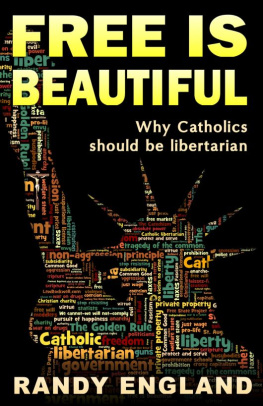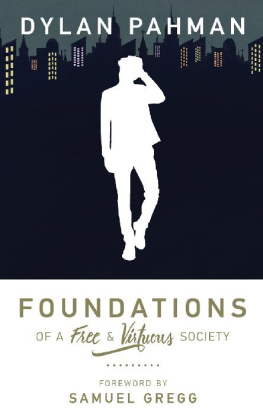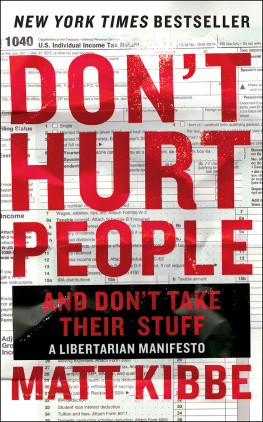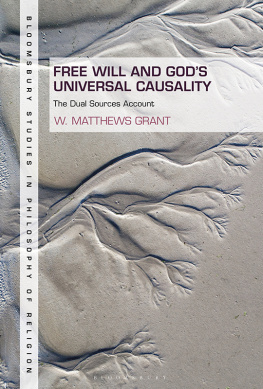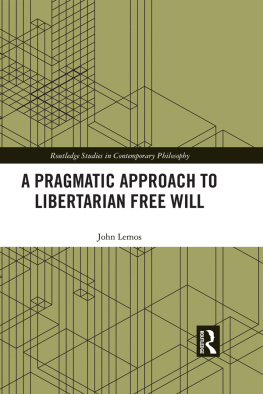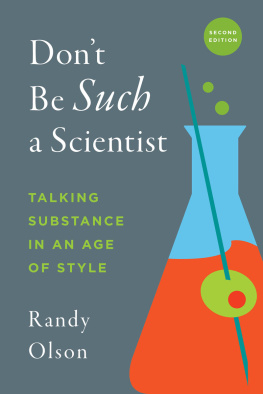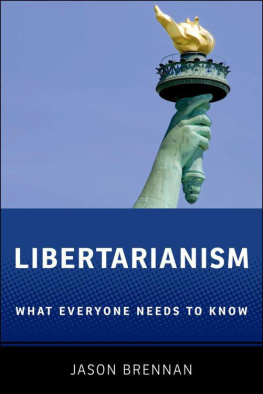FREE IS BEAUTIFUL
Why Catholics should be libertarian
Randy England
Smashwords Edition
Copyright 2012 Randy England
This book is available in print at mostonline retailers.
also by Randy England
Unicorn in the Sanctuary: The Impact of theNew Age on the Catholic Church
The Last Fisherman: A novel of the last Pope,the anti-christ and the end of the age
www.conventhill.com
Contact Randy England atrandyengland@gmail.com or visit www.freeisbeautiful.net.
Table ofContents
What is Libertarianism?
The non-aggression principle
Dont hit. Its one of the first rules welearn as toddlers. Dont hit. Keep your hands to yourself. And whensomeone starts crying and mother investigates, each rushes to bethe first to say, He hit me first!
The basic wrongness, the offensiveness, theimmorality of harming others deliberately is so ingrained in ournature as to be undeniable. This goes so deeplyas the sayinggoesthat even a dog knows the difference between being trippedover and being kicked. When every religion condemns the initiationof violence, we find near-universal agreement, even among people ofno religion.
We do not want people to harm us; so weeasily grasp this corollary to the golden rule: Do not unto othersthat which we would not want done to ourselves.
At the simplest level, we see that it iswrong to initiate violent force against another person. Known asthe non-aggression principle, this idea prohibits theinitiation of physical force (or the threat of force) againstpeople or property. The use of force is only legitimate in defenseof life or property. It is a small rulebeing but a (negative)piece of the golden rule itselfbut still a minimum standard ofconduct, without which there can be no peace.
The non-aggression principle as applied to thestate
Under most circumstances, everyone agrees itwould be wrong for Joe to take money from his neighbor Bill. Joewould not dream of stealing Bills money; he knows it is wrong, andhe also knows he could get punished for stealing.
Would it make any difference if Joe canconvince 20 other neighbors to gang up and take the money from Billand give it to Joe? No? What if hundreds or thousands get togetherand demand the money? What if they call themselves a government?What if they make a law to take Bills money?
Obviously, if the government takes Billsmoney, it doesnt call it theftit calls it taxation. We have hadmillennia to become accustomed to the idea that if enough peopleagree to initiate force against others, that force becomeslegitimate, even though such action by an individual would becondemned and severely punished. How does individual crime becomeacceptable when committed by the community?
If a thousand people each own one acre ofland and they cooperatively combine their land, then together theyhave one thousand acres. They could not pretend otherwise. If athousand people each have the right to defend their own lives andpropertywith violence if necessarythen those same thousand havethe right to cooperatively combine with each other to defend alltheir lives and property.
When a thousand people organize in the use ofdefensive force they become far more effective in protectingthemselves, but further, they cannot fail to notice that inwielding a thousand-fold power, they can do a lot more than justdefend themselves. They can make anyone do whatever they want. Howcan this happen? Can the group acquire a right not possessed by anyone of its members?
Bastiat wrote that while man is over thelaw, he cannot confer on the law more power than any individualpossesses. One cannot give what he does not possess. If a thiefgives you money he has stolen, you have no right to the money, forhe cannot give you a right he does not possess. Likewise,government becomes illegitimate when it pretends to possessauthority it has not been given. Rightful government must have avery limited role in our lives:
As noted earlier, when a government is giventhe power of a thousand peopleor a billionfor their defense, theurge to use the power is irresistible. This sets the stage forgovernments initiation of force whenever necessary to accomplishits ends, not because it is right, but because it can.
What essentially sets a nation-stateapart, declared candidate Barack Obama, is that it has a monopolyon violence. Clearly Obama was referring to aggressive, notdefensive, force, for the use of defensive force is never limitedto government. We all retain that right by nature. Only governmentroutinely uses aggressive force or the threat of force. The threatof violence compels the payment of every tax, and ultimately,whatever behavior it desires of the people.
Doing evil that good may result
We tend to approve of government when itpunishes or interferes with things we dislike. Likewise, we areunhappy when it acts contrary to our likings. Setting aside thoseactions of government of which we do not approve, pretend for amoment that every nickel government spends meets our personalapproval. Imagine a government so well behaved that all itsprojects are good. Unless that government has learned how tofunction on voluntary contributions, it must still threatenviolence upon taxpayers to force them to give up the money to payfor all that good.
Some cling to the fantasy that in the UnitedStates we pay our taxes voluntarily, that we consent to pay forservices we all need. The 19th-century abolitionist LysanderSpooner sets forth, and then demolishes, this notion of a voluntarytax system:
The fact is that the government, like a highwayman,says to a man: Your money, or your life. And many, if not most,taxes are paid under the compulsion of that threat.
The government does not, indeed, waylay a man in alonely place, spring upon him from the road side, and, holding apistol to his head, proceed to rifle his pockets. But the robberyis none the less a robbery on that account; and it is far moredastardly and shameful.
In his 1993 encyclical, VeritatisSplendor, Pope John Paul II set out the criteria for makingright moral decisions. While it is important to consider goodintentions and good results, neither of those criteria justify anevil action:
If aggression is evil, might it be anecessary evil? If good intentions or results do not justifywrongful actions, then there can be no necessary evil. Even ifthere were such an exception, one might expect such aggressionshould be minimized. The trend, however, is exactly the opposite:People demand more regulations, more taxes, more laws and morepunishment. The United States has the highest rate of imprisonmenton the planet. We might ask, how can a free countrywith 5percent of the earths populationincarcerate one-fourth of theworlds inmates?
Government, left to itself, cannot evenrecognize the evil, let alone ask how much is necessary, for it isnever satisfied. Government never has enough control, enough poweror enough money. If the book of Proverbs had been written in ourday, one suspects government would have been added to theproverbial list of things that never say enough!
The analogy is apt, as every complaint orirritation must be resolved by government while our rulers pile upmore coercive laws with every passing year. It is never enough andno one is very happy with it because people want different things.Not everyone can have his way.
A libertarian view of politics
Left, right, liberal, conservative. Wedisagree on so many things, yet in politics, both sides are reallyfighting for the same thing. Every political party has a platformthat is an outline of the society its members desire to bring about(if only the voters would put them in power). If the Democrats orRepublicans are not attractive, there are others, such as theGreens or the Constitution Party. On the surface, these partiesseem different in their goals, but from the standpoint of alibertarian, they are really after the same thing.

